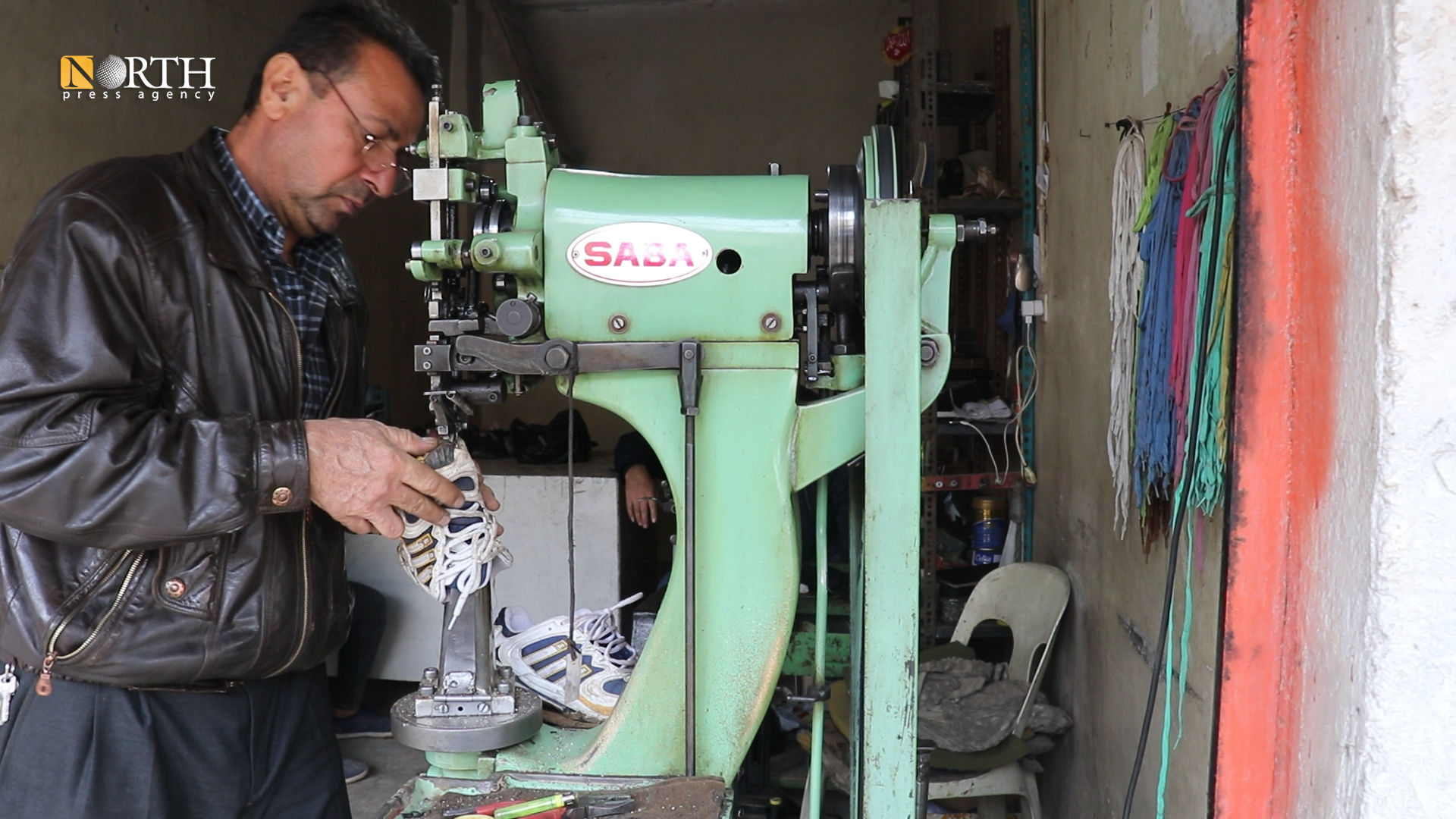QAMISHLI, Syria (North Press) – High prices have prompted families who do not have the means to buy new shoes in the countryside of Qamishli, northeastern Syria, to go to shoemakers in order to repair their children’s shoes this winter and reduce costs.
Expensive new shoes
Alwan Abdullah, a resident of the village of Nabouba in the Tirbespi countryside, waits for the shoemaker to finish repairing his shoes.
“Because of the high prices, we are repairing our old shoes; these plastic baby shoes cost 5,000 Syrian pounds (SYP),” Abdullah said.
In addition to old shoes, Abdullah brings new shoes he bought from the market. “When I buy it I sew it directly to make it last longer, because they are expensive. I cannot buy other shoes.”
The father of four attributes the high price of shoes to the decline in the value of the Syrian pound and the rise in the exchange rate of the US dollar.
The exchange rate of the dollar reached 2,870 SYP on Tuesday, according to money changers in the market of Qamishli.
Low-income families in the region suffer from the impact of price hikes in on their daily living needs, while seasonal expenses such as winter clothes and shoes constitute an additional burden.
Humanitarian profession
The shoemaker Hamza Omar, who has been working in this profession for 15 years, describes his profession as humanitarian.
The shoemaker said, “People are poor and do not have enough income. Some families have five children; they can’t buy shoes for all of them, so we take in consideration their difficult situation.”
“We try as much as possible to fulfill their requests. If the shoes are badly worn and difficult to repair, clients ask us to fix it, so we take into account their circumstances,” he added.
Omar believes that the price of the repairs he receives is simple compared to the price of his work supplies, which have doubled several times.
Repaired over and over
In the nearby town of Jil Agha, Sa’da Jassem holds a bag containing four pairs of old shoes for her children, heading to the shoemaker to repair them.
“The plastic shoes that we used to buy for 1,000 SYP, we buy them today for 5,000 SYP,” Sa’d said.
She adds that her husband’s income is barely enough for their children’s basic daily needs.
The average salaries in the Autonomous Administration institutions are 200,000 SYP, while daily wage workers get less than that in some jobs.
Jassem’s children hand down shoes to each other as they grow up, and the elder hands down his shoes to the younger one, as long as they can be used and repaired.
High prices for repairing the machines
Abdullah al-Rasm, the owner of a shoe repair shop in the town of Jil Agha, said that his work hours have doubled, and the high prices for repairing the machines he uses may cost him 300,000 SYP.
The shoemaker tells stories of mothers who ask him to fix shoes that are beyond repair. “A few days ago, a barefoot woman came carrying her shoes, which were torn and muddy…she begged me to repair her shoes, saying, ‘I do not have the price of new shoes.’”

